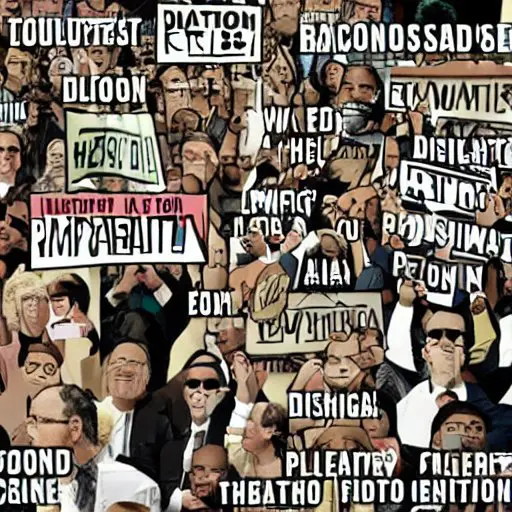The chemtrails conspiracy theory emerged in the late 1990s. It posits that the long-lasting trails left by aircraft, conventionally known as contrails (short for condensation trails), are actually “chemical trails” (chemtrails). These chemtrails, according to believers, consist of chemical or biological agents deliberately sprayed at high altitudes by government or other agencies for purposes unknown to the general public. This theory gained momentum with the rise of the internet, allowing for widespread dissemination of disinformation, misinformation, and speculation.

The roots of this theory can be traced back to a 1996 report by the United States Air Force titled “Weather as a Force Multiplier: Owning the Weather in 2025.” This document speculated on future weather modification technologies for military purposes. Conspiracy theorists misinterpreted this as evidence of ongoing weather manipulation. The theory was further fueled by a 1997 petition titled “Chemtrails – Ban High Altitude Aerial Spraying” and a 1999 broadcast by investigative journalist William Thomas, who claimed widespread spraying for unknown purposes.
Why people believe in chemtrails
- Distrust in Authority: A significant driver of belief in the chemtrail conspiracy is a general mistrust of governments and authoritative bodies. For some, it’s easier to believe in a malevolent secretive plot (which is often some kind of variation on the global cabal theory) than to trust official explanations.
- Cognitive Bias: Confirmation bias plays a crucial role. Individuals who believe in chemtrails often interpret ambiguous evidence as confirmation of their beliefs. The sight of a contrail, for instance, is perceived as direct evidence of chemtrail activity.
- Scientific Misunderstanding: Many chemtrail believers lack an understanding of atmospheric science. Contrails are formed when the hot humid exhaust from jet engines condenses in the cold, high-altitude air, forming ice crystals. This scientific process is often misunderstood or overlooked by proponents of the chemtrail theory.
- Social and Psychological Factors: Belief in conspiracies can be psychologically comforting for some, providing simple explanations for complex phenomena and a sense of control or understanding in a seemingly chaotic world. Social networks, both online as social media and offline as “meatspace” connections, also play a significant role in reinforcing these beliefs.
Chemtrails in the broader context of conspiracy thinking
The chemtrail conspiracy is part of a larger pattern of conspiratorial thinking that includes a range of other theories, from the relatively benign to the dangerously outlandish. This pattern often involves beliefs in a powerful, malevolent group controlling significant world events or possessing hidden knowledge.
- Relation to Other Theories: Chemtrail beliefs often intersect with other conspiracy theories. For example, some chemtrail believers also subscribe to New World Order or global depopulation theories like the white supremacist Great Replacement Theory.
- Impact on Public Discourse and Policy: The belief in chemtrails has occasionally influenced public discourse and policy. Local governments and councils have been petitioned to stop these perceived practices, reflecting the tangible impact of such beliefs.
- Challenges for Science and Education: Confronting the chemtrail conspiracy presents challenges for educators and scientists. Addressing scientific illiteracy and promoting critical thinking are key in combating the spread of such disinformation and misinformation.
- A Reflection of Societal Fears: The persistence of the chemtrail theory reflects broader societal fears and anxieties, particularly about government control, environmental destruction, and health concerns.


Chemtrails as part of a broader science denialism
The chemtrail conspiracy theory is a multifaceted phenomenon rooted in mistrust, scientific misunderstanding, and psychological factors. It is emblematic of a broader pattern of conspiracy thinking and science denialism that poses challenges to public understanding of science and rational discourse. Addressing these challenges requires a nuanced approach that includes education, transparent communication from authorities, and fostering critical thinking skills among the public.
This theory, while lacking credible scientific evidence, serves as a case study in how misinformation can spread and take root in society. It underscores the need for vigilance in how information is consumed and shared, especially in an age where digital media can amplify fringe theories with unprecedented speed and scale. Ultimately, understanding and addressing the underlying causes of belief in such theories is crucial in promoting a more informed and rational public discourse.



























































